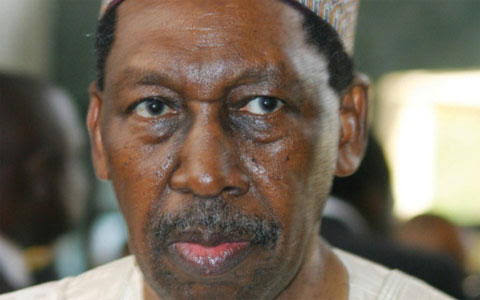- Safiu Kehinde
The Nigerian Bar Association (NBA) has mourned the passing of former Chief Justice of Nigerian, Mohammed Uwais, describing him as a pillar of the country’s judiciary system and a beacon of integrity and reform.
NPO Reported that the ex-CJN died on Friday at the age of 89.
Reacting to the development, the NBA, in a joint statement issued in Lagos, by its President, Afam Osigwe (SAN), and Secretary, and Mobolaji Ojibara, said that the late jurist was the architect of electoral reform in Nigeria, whose demise had created a huge vacuum.
“The Nigerian Bar Association mourns the passing of Hon. Justice Muhammad Lawal Uwais, GCON, former CJN, who departed this life today.
“Justice Uwais was more than a jurist; he was a pillar of the Nigerian Judiciary and a beacon of integrity, scholarship, and reform.
“His tenure as Chief Justice of Nigeria, from 1995 to 2006, remains one of the most defining periods in the history of the nation’s judiciary.
“As the second longest serving Chief Justice, he was a staunch advocate of judicial independence, ethical discipline on the Bench, and the preservation of democratic principles.
“A man of exceptional intellectual depth, Justice Uwais delivered landmark judgments that significantly advanced constitutional interpretation and civil liberties in Nigeria.”
The NBA noted that even in retirement, Justice Uwais continued to serve with distinction.
It said that as chairman of the Electoral Reform Committee of 2007, he proposed far-reaching recommendations.
“His legacy is one of legal brilliance, public service, moral discipline, and visionary leadership.
“Justice Uwais leaves behind an indelible imprint on our national conscience, the legal profession, and the system of justice in Nigeria.
“The Nigerian Bar Association extends its heartfelt condolences to the Uwais family, the Nigerian Judiciary, and the entire legal community,” the statement read.
Uwais was born on June 12, 1936, in Zaria, Kaduna State.
He was widely respected for his steadfast commitment to judicial reforms and the protection of judicial independence during his tenure.


